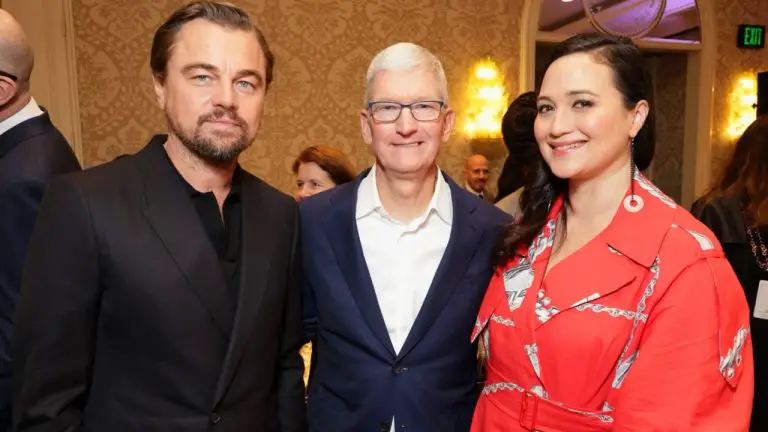Tom Hanks: Why Critics Don’t Matter in a Film’s Legacy!

Tom Hanks Critiques Film Critics, Advocates for “Time” as the Authentic Indicator of Success
In a revealing interview on the Conan O’Brien Needs a Friend podcast, Hollywood luminary Tom Hanks expressed his frank opinions on film reviewers, asserting that time, rather than criticism, serves as the definitive arbiter of a film’s significance. Tom Hanks, celebrated for his acting talent and directing debut in That Thing You Do!, provided a fervent perspective on the enduring trajectory that films frequently undertake from their premiere to ultimate recognition.
In a whimsical yet incisive discussion, Tom Hanks analyzed the conventional indicators of a film’s success. He articulated that, over the years, he has come to perceive reviewers as a negligible component of a film’s history, positing that a movie’s genuine worth is only disclosed over time. “All of this material endures,” he stated, expounding on the lasting quality of films and their ability to surpass transient evaluations. “Currently, time has emerged as a metric for assessing the significance of these matters.”
The Enduring Voyage of “That Thing You Do!”
In reflecting on his 1996 directorial debut That Thing You Do!, Tom Hanks noted that the picture, first disparaged by critics, has evolved into a cherished cult favorite. What was formerly disregarded by industry connoisseurs has now become a fundamental element for enthusiasts who persist in valuing its eccentric appeal. “In the past, it was merely a fistfight,” Tom Hanks recalled, illustrating the intense strain associated with a new release. “It pertained to every film you had scheduled for release; will you qualify for the playoffs or not?”
Tom Hanks discussed traversing multiple “Rubicons,” or critical milestones, in the filming process. The initial step, he stated, is to genuinely appreciate the script. “Firstly, do you love it or not?” He emphasized the significance of personal connection to a project as the foremost consideration. Upon the conclusion of production and his initial viewing of the picture, Tom Hanks remarked, “You may appreciate it.” The functionality is irrelevant. You observe it and remark, ‘I believe we performed quite well.’
The Function of Critics: “We Disdain It, We Appreciate It”
Hanks acknowledges that critics influence a film’s first response. He designated this phase as “Rubicon No. 3,” during which detractors provide their frequently divisive evaluations. “It is consistently fluctuating: ‘We detest it, we appreciate it.’ “This is the most unfortunate situation…” he remarked, expressing both wit and exasperation. In a humorous tirade, Tom Hanks recounted requesting his wife to “remove the revolver from the glove compartment” following a particularly harsh critique, illustrating the susceptibility even a veteran actor can experience when confronted with criticism.

Notwithstanding this, Tom Hanks contended that reviewers and box office figures constitute but a portion of the narrative. “Subsequently, an extensive period elapses during which those matters become irrelevant,” he stated. Ultimately, it is the passage of time that determines a film’s legacy. “The film exists independently of any classification as a success or failure, or any positive or negative judgment,” he continued. Tom Hanks argues that time is the definitive factor in determining a film’s resonance with moviegoers and its enduring significance in cinematic history.
The Development of a Cult Classic
Tom Hanks explained how, years after the release of That Thing You Do!, the same critics who initially disparaged it began to commend it. “They remarked, ‘All that is required is a span of 20 years between now and then, and it ultimately conveys certain words,’” he recounted with a sardonic smile. He added that this transition renders the voyage valuable. “That is the carnival, that is the contest,” Tom Hanks concluded with a philosophical demeanor. I have confidence in that. That is acceptable.
Reconceptualizing Achievement in Hollywood
In Hollywood’s rapid milieu, success is frequently quantified by immediate box office figures and opening weekend excitement. Hanks’ viewpoint contests that mentality, advocating for the perception of films as enduring artifacts rather than ephemeral objects shaped by fleeting beliefs. “An element that was ineffective in the past may now prove effective, or conversely, something that was once significant has become obsolete and lacks relevance,” Hanks reflected, emphasizing his conviction that a film’s enduring impact is contingent upon its capacity to resonate through generations.
In a media environment characterized by immediate responses, Tom Hanks’ remarks underscore a unique appreciation for the gradual, lasting influence of storytelling. He reminds audiences and authors alike that, although critics may express their opinions, genuine success materializes only over time—a factor beyond the influence of any review.
Follow us on Instagram and X (Formerly Twitter)
For the latest posts visit The Celebrity Gossips






